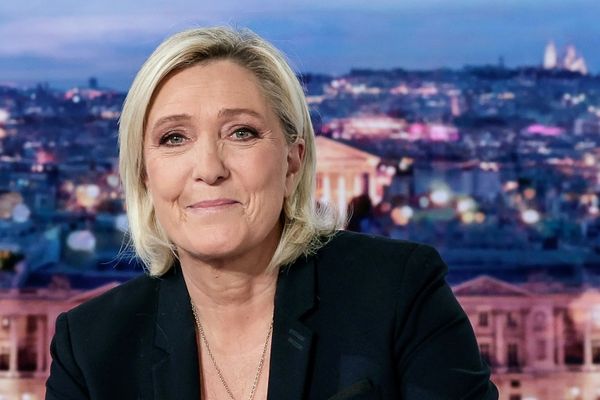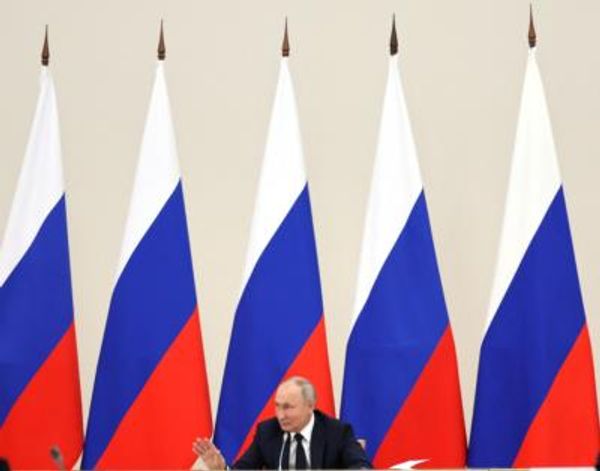
Hong Kong (AFP) - The arrest of a 90-year-old cardinal under Hong Kong's national security law has shocked the city's Catholic community as the Vatican seeks to renew a secretive deal with Beijing.
Joseph Zen's arrest comes during a crackdown by Beijing on dissent in Hong Kong, deepening fears that mainland China-style restrictions on faith are coming to a once-outspoken city where many democracy advocates are Christian.
It is also a sensitive time for the Vatican, which is working to renew its controversial agreement with Beijing later this year over the appointment of bishops.
"Those who oppose the deal now have a stronger reason to oppose it," Beatrice Leung, a member of the Sisters of the Precious Blood and longtime friend of Zen's, told AFP.
Zen, one of Asia's highest-ranking Catholic clerics, was among five democracy advocates arrested this month for "conspiracy to collude with foreign forces".
The group is being investigated over a now-defunct fund to help pay legal costs for dissidents, and they will appear for a court summons on Tuesday.
Zen, who fled mainland China before the communists took control in 1949, was calm when the police came for him.
"Fear not for God has it all planned," he said according to Oscar Lai, a diocese officer who volunteered to assist him.
'Dark days'
For decades, there have been two Catholic churches in China, one that answers to Beijing, and an "underground" congregation that remains loyal to Rome -- often at huge personal cost.
Many underground church supporters resided in Hong Kong, a separate diocese in a city where religious freedom remains, for now.
But in recent decades, the Vatican has built relations with China.
The culmination of this rapprochement was a 2018 deal, the contents of which remain secret, allowing China to choose bishops on the mainland and then have Rome approve them.
Zen was hugely critical, calling the deal a "sell-out" of China's underground Catholics.
The agreement was renewed in 2020, even as Beijing was accused of suppressing Muslims in the far-western region of Xinjiang and underground Christians in China's east.
Xia Baolong, a hardliner who led the latter campaign against churches, is now the top Chinese official for Hong Kong policy.
Justin Tse, a Singapore-based scholar who studies Hong Kong's Christians, said "nervous anxiety" now permeates religious communities.
"There's a lot of talk about dark days," he told AFP.
"All of us were shocked and angry," a 27-year-old churchgoer surnamed Wong said of Zen's arrest, telling AFP she feared Hong Kong's Catholic hierarchy will become "more conservative, more fearful".
'Position of strength'
Factions within the Catholic Church's hierarchy have long been critical of Pope Francis' willingness to engage with Beijing.
But few analysts and observers expect the Vatican to be moved to reassess its rapprochement with Beijing over Zen's arrest.
After all, he travelled to Rome in 2020 to try and persuade Pope Francis not to renew the bishop deal and was not even granted an audience.
"The Holy See does not want this thread of dialogue and communication to be broken," Vatican analyst and papal biographer Marco Politi told AFP.
"It is clear that China is in a position of strength and the Vatican in a position of weakness."
The Vatican has been muted on Zen.
Its Secretary of State Cardinal Pietro Parolin told reporters he was "very sorry" about the arrest but added that he hoped it would not "complicate" relations with Beijing.
On Sunday, Pope Francis said he was following "attentively" the "often complex" life of Catholics in China, without directly referencing Zen.
Some say the arrest of the retired cardinal could still backfire for China and create problems for Pope Francis.
Veteran Vatican commentator John L. Allen said Zen had become "increasingly marginalised" in the Francis papacy.
"Had China done nothing, Zen likely would have remained inconsequential," he wrote in an analysis for the Catholic website Crux.com.
"Now, however, Francis can't afford to ignore Zen, because his arrest -- and whatever may come next in terms of a prosecution and even possible incarceration -- is destined to generate sympathy and activism on Zen's behalf all across the world."







